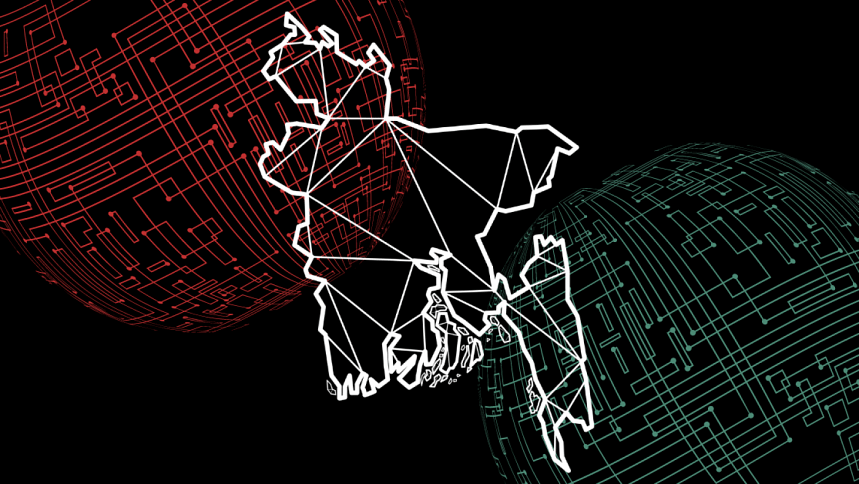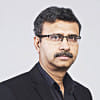Digital Bangladesh: A story of transformation, resilience, and sustainability

Being "digital" has become one of the most important trends in Bangladesh over the last decade. As the pioneer of the digital brigade, Bangladesh has been able to achieve an inspiring level of success in bringing about a digital revolution within the country. The Digital Bangladesh Vision, declared on December 12, 2008 by the honourable prime minister, Sheikh Hasina, brought about significant improvements for the economic, educational and social inequality factors that determine the digital divide, including income, access to digitised services, and socioeconomic factors.
The prime minister announced in her election manifesto that Bangladesh would be a dignified middle-income Digital Bangladesh when the country completes 50 years of independence. The idea of the Digital Bangladesh vision was to promote harmonised and sustainable digitisation so that society as a whole can benefit from digitisation. It was her integrity, foresight, and courageous leadership that helped us identify ourselves as proud citizens of a prestigious middle-income, technology-based Digital Bangladesh in just 13 years. The initiatives led by the architect of Digital Bangladesh and ICT affairs advisor to the prime minister, Sajeeb Wazed Joy, made our technology industry an advanced and knowledge-based driving force for the country's growth. He turned the vision into a strategic roadmap to change the fates of common people, using ICT as a driving force while creating knowledge, innovation, and efficiency throughout the economy. As per his guidance, we implemented the vision emphasising human resource development, digital government, connectivity and infrastructure, and ICT industry promotion – the four pillars of the vision.
Moving forward with this philosophy, we established the Sheikh Kamal IT Training and Incubation Centers. Bangabandhu Sheikh Mujibur Rahman used to say that the wealth of Bengal is its soil and people. Sajeeb Wazed Joy made studying ICT compulsory for Classes 6 to 12. On the other hand, in just 14 years, 13,000 Sheikh Russel Digital Labs have been set up across the country so that our children can be well aware of knowledge relevant to ICT.
We were able to curate and deliver timely and relevant programmes, emphasising the leadership, vision, and ideation of the youth for constructing a knowledge-driven economy and ensuring a leadership position for Bangladesh. There is a cultural belief that if one doesn't acquire a Bachelor's or Master's degree, they will not be able to earn any respect in their family or society. But Sajeeb Wazed Joy said that only those who want to teach, do research, and want to take up higher education should do so. HSC graduates can become proficient in technical skills such as web development, mobile app development, game development, image processing, digital marketing, etc, through short-term training, and take up jobs or become self-employed. This particular philosophy has changed the lifestyle of the youth in Bangladesh. With our initiatives, we have been able to groom around 6.5 lakh freelancers with technical knowledge, who made Bangladesh the second-largest supplier of online labourers across the globe.
Bangladesh is now developing frontier technologies such as artificial intelligence, robotics, blockchain, Internet of Things (IoT), and preparing to exploit the potential and challenges of the Fourth Industrial Revolution (4IR). Specialised labs of high technology in IoT, robotics, and cyber security have been set up in different universities. IT Business Incubators are being set up in universities as well. Initiatives have been taken to set up Sheikh Kamal IT Training and Incubation Centers in every district, with the aim of building innovation and a knowledge-based generation.
Startup Bangladesh Limited and iDEA were established with a fund of Tk 500 crores, and so far, we have supported 382 startups. We invested in a few organisations, providing seed money and making equity investments in various seed and growth-stage startups. More than a thousand women entrepreneurs were provided with Tk 50,000 as seed money each through the Startup Bangladesh initiative on behalf of the prime minister. Our main aim with such investments was to empower the youth to build their courage and take the risk of doing innovative business.
We have been able to create 20 lakh employment opportunities for the youth in the software and hardware sector, and from the ICT sector, we have earned USD 1.4 billion from exports, which was only USD 26 million 13 years ago. We have around 13 crore active internet users, and through 2,000 digital portals for service, we are serving about one crore users per month.
One of the major success stories of Digital Bangladesh, that has helped put the country on the map of research circles, is its resilience in the face of the Covid pandemic. Had the prime minister not implemented Digital Bangladesh, it would not have been possible to deal with Covid successfully. If we were to face the Covid epidemic before 2008, how would 1.70 lakh educational institutions (which were physically closed for two years) have run their educational programmes? How would five crore students have studied? And how would three lakh women entrepreneurs have conducted their e-commerce businesses? Without the successful initiatives of Digital Bangladesh, it would not have been possible to process over two crore e-files through mobile phones, conduct the proceedings of around 3.47 lakh hearings, and carry out over two lakh bails.
Our prime minister set a record of leading 1,600 virtual meetings in a span of two years during the pandemic, which included cabinet meetings, Ecnec, and political meetings. In 2010, if we hadn't got the bill passed in parliament, after getting approval from the prime minister, for the Digital Hi-tech Park, running the activities of 109 Hi-tech parks (both government and private) in the country wouldn't have been possible.
During the pandemic, people availed the services of police, fire service, and ambulances through 999. Fifteen crore people registered for services through the Surokkha app. On the other hand, the 333 call centre inaugurated in 2018 assisted people suffering from lack of food. Digital Bangladesh is not a dream anymore, but a reality. It's now all about resilience and sustainability.
The prime minister recently declared that we will transform the country into Smart Bangladesh by 2041. The four pillars of the Smart Bangladesh vision are: Smart Citizen, Smart Government, Smart Economy, and Smart Society, which will be achieved under the dynamic leadership of Sajeeb Wazed Joy. We are preparing our youth to lead the way towards the fourth industrial revolution. Our goal is to ensure Bangladesh not only takes part in the next wave of innovation, but also leads it.
Zunaid Ahmed Palak, MP, is the state minister for the ICT Division, Government of Bangladesh. E-mail: [email protected]

 For all latest news, follow The Daily Star's Google News channel.
For all latest news, follow The Daily Star's Google News channel. 








Comments